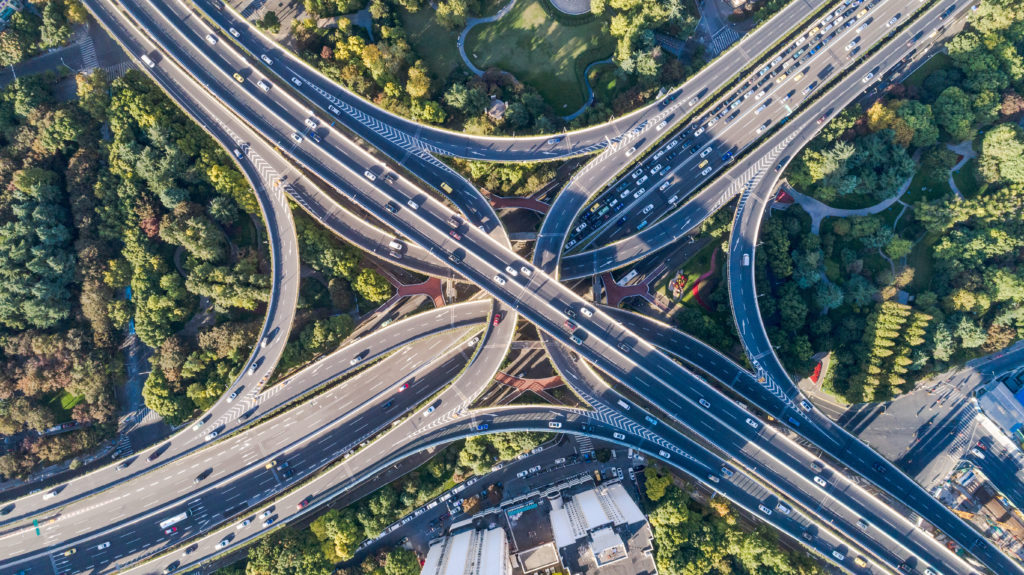“Roads and bridges are trucking’s shop floor,” said American Trucking Associations President Chris Spear in a recent ATA Technology and Maintenance Council Fall Meeting and Transportation Technology Exhibition. “That’s where we work. And if we do not have good infrastructure, not only does trucking suffer, but so does the entire country.”
Spear has made clear his belief that the upcoming infrastructure package making waves on Capitol Hill will ultimately get the approval the trucking industry has hoped for, especially following the burden that has fallen on truckers’ shoulders throughout the pandemic era.
The $1 trillion infrastructure package is indeed “a very good bill,” Spear added, but it isn’t necessarily perfect, although “no bill ever is. But, even though it just happens to be going through Congress in a very toxic political environment, it is a very good piece of legislation that I believe will be signed into law very soon.”
The DRIVE-Safe Act’s inclusion in this bill will allow truck drivers over the age of 18 operate their commercial motor vehicles within interstate commerce–a move that Spear praises as a potential solution towards easing the current driver shortage.
“This industry is now recognized at a level we never thought possible,” Spear said. “It feels good to get a pat on the back. Truckers don’t have the luxury of telecommuting to work, but truckers rose to the challenge [during the pandemic], despite our drivers having no idea what kind of impact COVID would have on them or their families.”
After House Democrats advanced the climate change and transit proposals in the transportation budget bill–part of Democrats’ $3.5 trillion budget reconciliation bill–chamber leaders are expected to finalize overall proposal plans by the end of September.
“From tackling climate change, to addressing racial and environmental injustices, to building back better after the COVID-19 pandemic, our nation faces big challenges.” said Chairman Peter DeFazio following the panel’s approval of the budget bill. “By advancing this legislation, we’re taking a key step forward in addressing those challenges.”
The transportation measure would allocate $10 billion for low-income communities, $6 billion for local surface transportation priority projects (with specific funding at congressional districts), $4 billion for greenhouse gas emissions reduction projects across surface transportation corridors, and $4 billion for safety programs and transportation equity efforts. Another $2.5 billion will be dedicated to port infrastructure projects and freight supply chain resilience projects, $1 billion will be dedicated to low-emission tech project developments through the U.S. Department of Transportation, $1 billion will be offered to energy-efficient building promotion through the U.S. General Services Administration, and an additional $500 million will be offered to the Federal Emergency Management Agency.
“With this legislation, we can reduce carbon pollution from the transportation sector that’s driving the climate crisis and make communities more resilient to extreme weather events, connect people with good-paying jobs and affordable housing, address the planning mistakes of the past by reconnecting communities, make meaningful investments to plan or and develop high-speed rail projects, provide more people [with] access to clean water, and make our aviation and maritime sectors greener,” explain DeFazio.
The transportation budget bill will likely be included in the $3.5 trillion budget reconciliation legislation by the House Democratic Caucus, with major measures working to boost electric vehicle infrastructure, improve climate change infrastructure resilience, implement social safety net improvements, and support childcare and elderly healthcare assistance. Democratic leaders within the Senate are also aiming to legislate on the bill in September.
Social infrastructure plan-related economic benefits, along with climate change improvements, are the main focus of Biden’s ‘Build Back Better’ agenda.
“My ‘Build Back Better’ plan calls for significant new investments in upgrading research infrastructure [and] laboratories all across the country,” Biden said. “We’ll be making one of those breakthroughs in solar and wind [with] storage out of these facilities. [We’ll] out-innovate the rest of the world and drive down the costs of renewable energy.”
These improvements have indeed been a long time coming, democrats say.
“Senate Democrats have been working around the clock for weeks and months with our House colleagues and the Biden administration on the ‘Build Back Better’ agenda,” said Majority Leader Chuck Schumer. “We know the American people are facing challenges of monumental proportion. So, we must–and we will–pass legislation that meets the moment.





